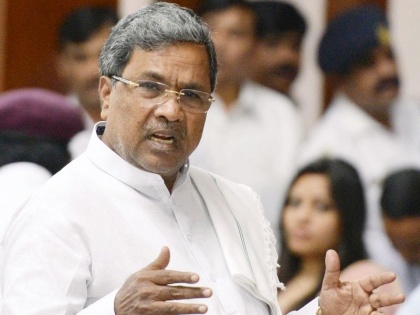Karnataka CM Proposes Ordinance for Increased Kannada Presence on Signboards
By Lokmat English Desk | Published: December 28, 2023 06:49 PM2023-12-28T18:49:04+5:302023-12-28T18:49:13+5:30
Following protests urging increased use of Kannada, Karnataka Chief Minister Siddaramaiah announced plans for an ordinance requiring 60% of ...

Karnataka CM Proposes Ordinance for Increased Kannada Presence on Signboards
Following protests urging increased use of Kannada, Karnataka Chief Minister Siddaramaiah announced plans for an ordinance requiring 60% of nameplate and signboard space to be dedicated to the language. The proposed measure, anticipated to take effect February 28, 2024, comes amid ongoing debates about balancing linguistic diversity and local identity. The announcement follows protests on December 27 by pro-Kannada organizations demanding greater prominence for the language. Addressing concerns about vandalism during protests, Siddaramaiah emphasized peaceful demonstrations and legal repercussions for anyone breaking the law. "We won't restrict anyone from protesting," he said, "but the government will not tolerate lawlessness."
The proposed ordinance aims to amend section 17(6) of the Kannada Language Comprehensive Development Act (KLCDA) passed by the previous BJP government in March 2023. The current section mandates 50% space for Kannada with either state or local government consent, but Siddaramaiah intends to implement a 60:40 ratio based on a circular issued during his previous term. This move echoes similar recent efforts in neighboring Maharashtra, where a law requiring Marathi on signboards sparked debate. In both cases, proponents argue for protecting and promoting local languages, while opponents raise concerns about potential economic implications and infringement on linguistic freedom.
Karnataka's proposal, drafted due to the ongoing legislative hiatus, will face further scrutiny in the coming months. Its implementation and potential impact on businesses and the state's diverse linguistic landscape remain to be seen.
Open in app